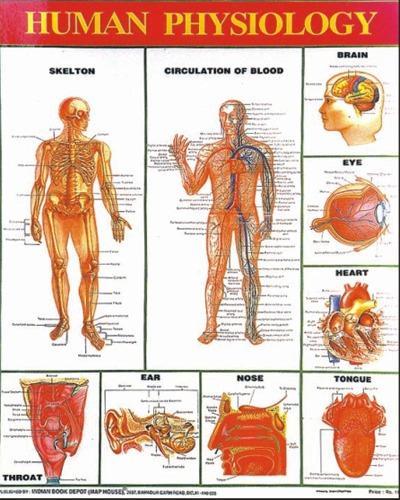Physiology (/ˌfɪziˈɒlədʒi/; from Ancient Greek φύσις (physis), meaning 'nature, origin', and -λογία (-logia), meaning 'study of) is the scientific study of the functions and mechanisms which work within a living system.]
As a sub-discipline of biology, the focus of physiology is on how organisms, organ systems, organs, cells, and biomolecules carry out the chemical and physical functions that exist in a living system
Central to an understanding of physiological functioning is the investigation of the fundamental biophysical and biochemical phenomena, the coordinated homeostatic control mechanisms, and the continuous communication between cells
The physiologic state is the condition occurring from normal body function, while the pathological state is centered on the abnormalities that occur in animal diseases, including humans
According to the type of investigated organisms, the field can be divided into animal physiology (including that of humans), plant physiology, cellular physiology, and microbial physiology
The Nobel Prize in Physiology or Medicine is awarded by the Royal Swedish Academy of Sciences to those who make significant achievements in this discipline

- معلم: م.م. رسول مؤيد شكر